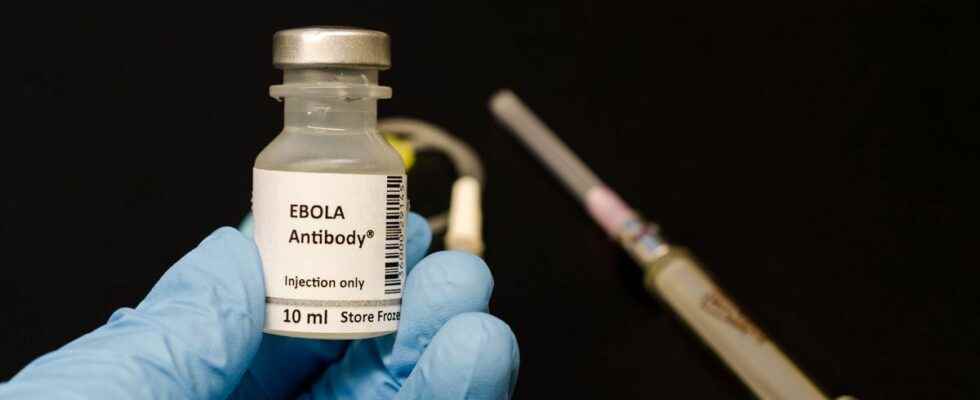Posted ,
Reading 2 mins.
Epidemics of Ebola virus disease have affected certain regions of Africa for several years. There is a vaccine against this virus and a study conducted by scientists seems to show convincing results regarding its effectiveness.
Ebola is a virus that causes a rare but very serious, often fatal disease in humans. It is characterized by fever, fatigue, muscle pain, sore throat and headache. Vomiting, diarrhea and hemorrhagic bleeding may also occur. Fortunately, there is now a vaccine against this virus, the effectiveness of which has just been proven by American and Congolese researchers.
Collaborative work between American and Congolese researchers
Researchers from the Fielding School of Public Health at the University of California, Los Angeles worked in collaboration with their colleagues in the Democratic Republic of Congo. Their work involved a total of 608 people, between August and September 2018. Eligible study participants were contacts or “contacts of contacts” of confirmed cases of Ebola virus disease or healthcare workers on the front lines of Ebola. virus.
Participants had to answer a questionnaire, undergo blood tests and perform physical fitness tests at regular intervals, on the first day of vaccination, between the 21st and 28th day and 6 months after the injection.
A strong antibody response following the vaccine
The study participants were mostly men between the ages of 20 and 39. Among all these volunteers, 32% had been in contact with a confirmed case of Ebola, 66% had had no contact and 2% did not know their status. After studying the data collected, the researchers noted an increasing antibody response between the day of the vaccine and 6 months later. Differences emerged between males and females, with the latter more likely to have a higher antibody response. Finally, the younger ones showed a stronger immune response as well. This last observation is attributed to the better functioning of the immune system of the youngest.
A study with limitations
For the authors, their results “provide crucial evidence that antibody response and persistence after Ebola vaccination is robust in outbreak settings in the DRC.”. They also note that this knowledge “significantly inform the use of vaccination for epidemic control“. They know, however, that the low number of participants constitutes a bias but explain that they “recruited a limited sample size with no defined control group due to resource constraints and security concerns related to data collection in an area with an active Ebola virus disease outbreak experiencing armed conflict”.
The researchers now want to launch new studies to support these initial encouraging results with more data.
